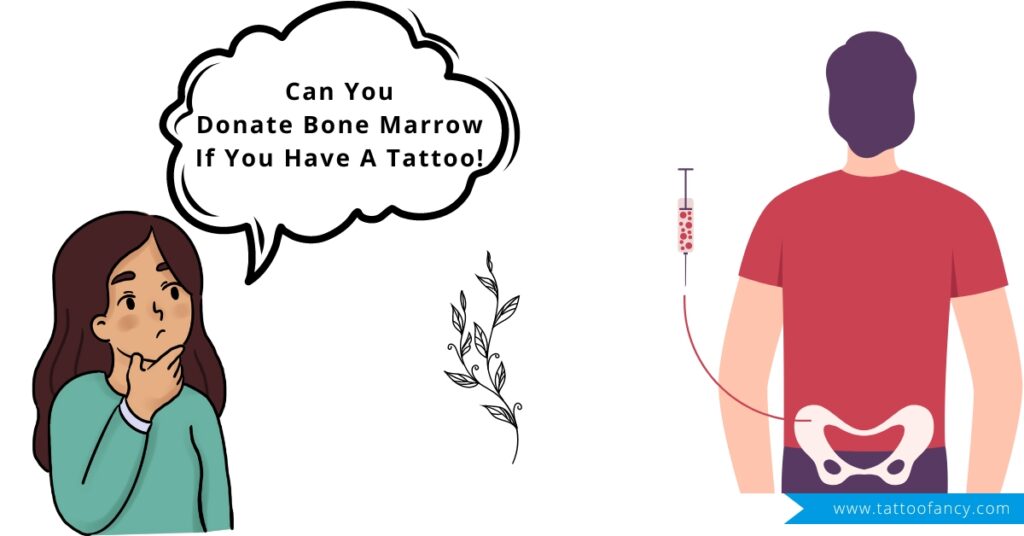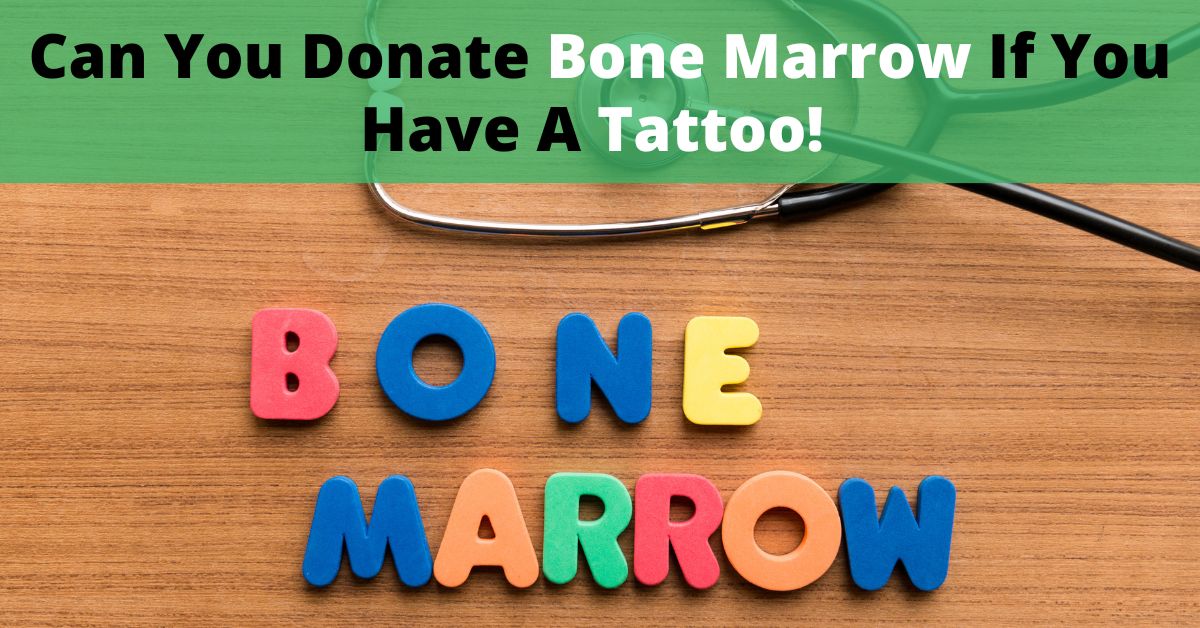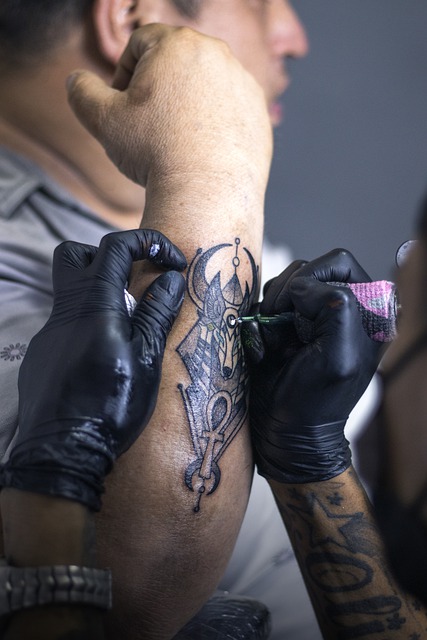
There are many myths and misconceptions about donating bone marrow, and one of the most common is that you cannot donate if you have a tattoo. This is simply not true! You can absolutely donate bone marrow, regardless of whether or not you have a tattoo. In fact, there are no medical reasons why you cannot donate, as long as you are in good health and meet the other eligibility requirements. So if you’re thinking about donating, don’t let a tattoo stop you!
1. What is bone marrow and what does it do?

Bone marrow is a spongy, fatty tissue found in the center of some bones. It produces blood cells, including red blood cells, white blood cells, and platelets.
Bone marrow is essential for the body’s blood cell production. It produces stem cells, which can develop into red blood cells, white blood cells, and platelets. These cells are crucial for the body’s ability to fight infection, carry oxygen to the tissues, and to clot blood.
A bone marrow transplant is a treatment for certain blood disorders and cancers. In this procedure, healthy bone marrow is transplanted into the patient’s body. The transplanted marrow helps to restore the patient’s blood cell production.
- Tattoos & piercings shouldn’t be an issue.
- If you’re called to be a donor, you will be carefully evaluated for possible signs/symptoms of infection.
- As long as it is over 4 months since the procedure, you can register as a bone marrow donor.
- Most people with tattoos can donate blood, as long as they do not have risk factors that prohibit or limit blood.
2. Why is bone marrow important?
- Bone marrow is the spongy tissue inside bones that produces blood cells.
- It is important because it produces red blood cells, which carry oxygen around the body, and white blood cells, which fight infection.
- It is also a store of fat and stem cells, which can be used to treat blood disorders and cancer.
- Bone marrow transplants are sometimes used to treat people with leukemia or other blood disorders.
3. The risks of bone marrow donation
There are a number of risks associated with bone marrow donation, though most are minor. The most common risks include:
Infection: There is a very small risk of infection when the needle is inserted into the bone marrow. However, this can usually be effectively treated with antibiotics.
Bruising and pain: There is also a risk of bruising and pain around the injection site. This is usually temporary and can be alleviated with pain medication.
Bleeding: There is a small risk of bleeding from the injection site. This is usually not serious and will resolve on its own.
Anemia: There is a slight risk that the donor may develop anemia as a result of the donation. However, this is usually temporary and can be treated with medication.
Overall, the risks of bone marrow donation are relatively minor. However, it is important to speak with a doctor beforehand to make sure that donation is the right choice for you.
4. The benefits of bone marrow donation
Bone marrow is the spongy tissue inside bones that produces blood cells. A bone marrow transplant is a procedure to replace damaged or diseased bone marrow with healthy bone marrow.
Bone marrow transplants can be used to treat a number of conditions, including leukemia, lymphoma, and other blood disorders.
The first step in a bone marrow transplant is to collect healthy bone marrow from a donor. This can be done through a process called peripheral blood stem cell (PBSC) collection or bone marrow harvest.
PBSC collection is a less invasive procedure than bone marrow harvest, and it is the most common method used to collect bone marrow for a transplant. PBSC collection is usually done using a needle and syringe to withdraw blood from the donor. The blood is then passed through a machine that removes the stem cells.
Bone marrow harvest is a surgical procedure in which bone marrow is removed from the donor’s hipbones. This is done under general anesthesia, and the donor usually stays in the hospital for a few days.
- There are lots of questions that people have before registering as a potential bone marrow donor.
- Despite some similarities, bone marrow donation is different from donating blood.
- Bone marrow matches are determined by a person’s human leukocyte antigen (HLA) tissue type, not by blood type.
- Bone marrow donors donate only stem cells, rather than blood.
- Swabbing is the test used to see if you are a matching bone marrow donor for any patient in need.
- We send you a cheek swab kit, you swab your cheeks and sent it back to us.
- Once we receive it, it goes to the lab for processing, and then you are added.
After the bone marrow or PBSCs are collected, they are frozen and stored until they are ready to be transplanted.
The recipient of the transplant will undergo a conditioning regimen before the transplant. This
5. What happens after bone marrow is donated?
After a donor has given bone marrow, the donor’s body will replace the marrow within a few weeks. The donor may experience some side effects, such as fatigue, soreness, or bruising, but these should go away within a few days. the donor’s name, Social Security number, and other identifying information are removed from the bone marrow. The bone marrow is then ready to be transplanted into a patient.
FAQ
1. Can you donate bone marrow if you have a tattoo?
You can donate bone marrow if you have a tattoo, but it must be healed and free of infection.
2. How long does it take to donate bone marrow?
It takes about two hours to donate bone marrow.
3. What is the process of donating bone marrow?
The process of donating bone marrow involves removing marrow from the donor’s hipbone using a needle and syringe.
4. What are the risks associated with donating bone marrow?
The risks associated with donating bone marrow include infection, bleeding, and pain.
5. Who is eligible to donate bone marrow?
Anyone who is healthy and between the ages of 18 and 60 is eligible to donate bone marrow.
Conclusion: There is no conclusive evidence that tattoos will impact your ability to donate bone marrow. There are a few case studies of people with tattoos who were unable to donate, but it is unclear if the tattoos were the cause. The bottom line is that if you are interested in donating bone marrow, you should speak to a doctor to see if you are eligible.


